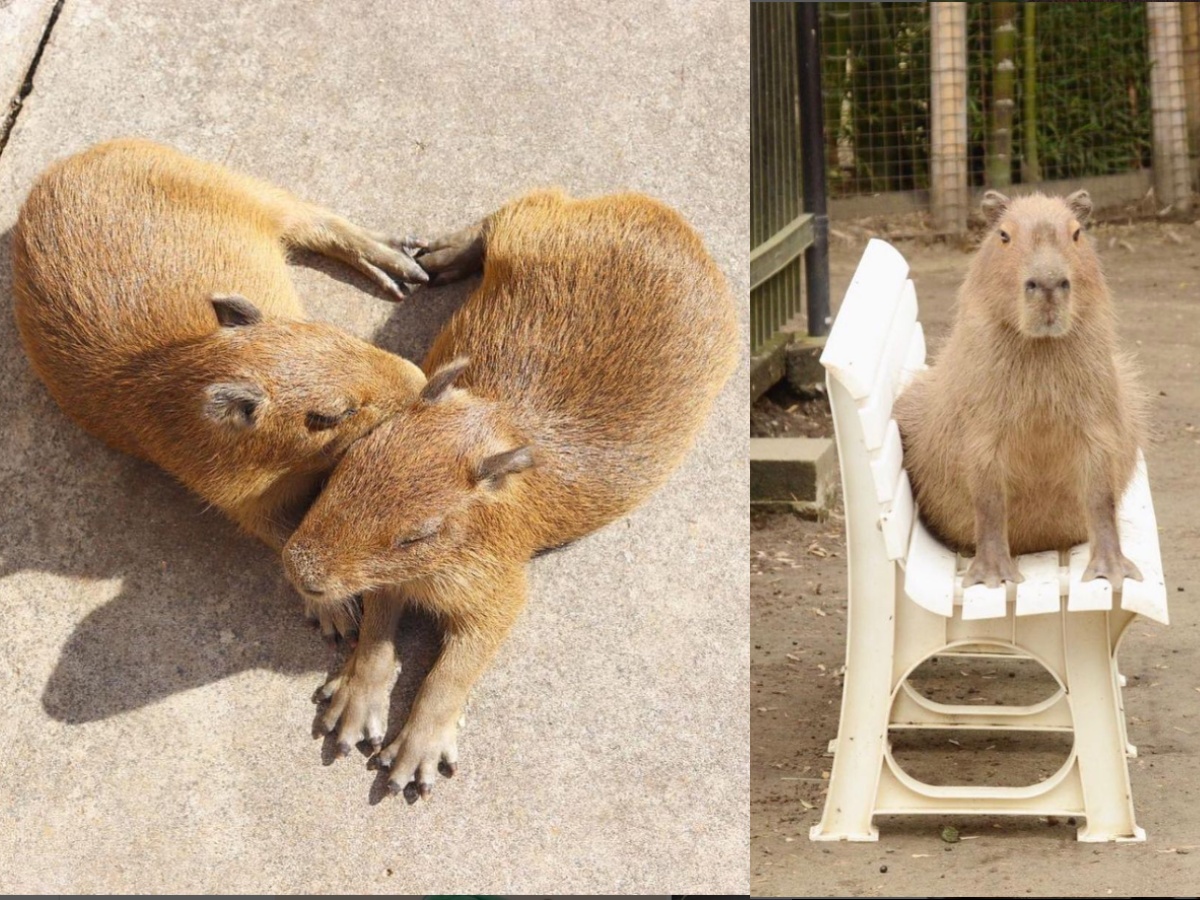Where in the United States can you legally keep a capybara as a pet? For starters, Capybaras are the world’s largest living rodents native to South America. As such, these giant cavy rodents that look like Guinea pigs are considered exotic in the United States and are illegal to keep as pets in some states. Currently, Capybaras, also called giant guinea pigs, are legal to keep as pets with and without a permit or license in forty-one US States.
Even if it is legal to own a Capybara in your state, some municipalities may not allow it. For example, Capybaras are legal in New York State but not in New York City. So, if you are considering a pet Capybara in your state, you should first check your local animal ordinances to see if it is allowed. Furthermore, owning a Capybara in some states where it is legal may be almost impossible due to the permitting process, which can be so extensive and complicated. In Pennsylvania, for example, Capybaras are legal with an exotic wildlife possession permit, which requires the documentation of at least 2 years of experience in hands-on work with the rodent.
States in Which Capybaras are Legal
- Alabama
- Arizona
- Arkansas
- Delaware
- Florida
- Hawaii
- Idaho
- Indiana
- Iowa
- Kansas
- Kentucky
- Louisiana
- Maine
- Maryland
- Michigan
- Minnesota
- Mississippi
- Missouri
- Montana
- Nebraska
- Nevada
- New Hampshire
- New Jersey
- New Mexico
- New York
- North Carolina
- North Dakota
- Ohio
- Oklahoma
- Pennsylvania
- Rhode Island
- South Carolina
- South Dakota
- Tennessee
- Texas
- Utah
- Virginia
- Washington
- West Virginia
- Wisconsin
- Wyoming
In many of the states listed above, pet lovers need to obtain a permit or license in order to own a Capybara. In Florida, for instance, you need to obtain a Class III permit from the Florida Fish and Wildlife Conservation Commission before keeping a Capybara as a pet.
Capybaras are unarguably illegal in the following states: Alaska, California, Colorado, Connecticut, Georgia, Illinois, Massachusetts, Oregon, and Vermont.
Capybaras are illegal in Washington, D.C., as the capital city and federal district law clearly states that only domesticated rodents and rabbits are permitted.
A Little Info About Capybaras
For starters, do Capybaras make good pets? By all accounts, Capybaras are friendly, gentle, and affectionate wild animals that make excellent pets for their owners. However, a pet Capybara needs a marshy environment to stay healthy and happy. Although Capybaras, which generally tend to be shy, are not prone to biting humans, they can act aggressively if they feel stressed or threatened. Furthermore, pet capybaras tend to do well with domestic animals such as cats and dogs.
Here is a video of a cat and a pet Capybara:
A video of a pet Capybara and a dog.
As social creatures, Capybaras do best when kept in pairs. If you love Capybaras and are planning to keep one as a pet, I suggest you make a plan for two. A single pet Capybara may feel unhappy and depressed whenever its loving owner is not at home, as you can see in the video below.
The above video from Capybara World shows a pet Capybara named Romeo who use to cry every time its owners left home.
As true herbivores, Capybaras feed primarily on various types of grass in the wild. A full-grown Capybara can consume up to 8 pounds of grass per day. When fresh grasses and water plants dry up during dry seasons, Capybaras are known to eat squashes, melons, reeds, and grains. According to the San Diego Zoo, Capybaras also eat their own poo to get helpful bacteria.
At the San Diego Zoo, Capybaras eat Bermuda grass hay, high-fiber biscuits, and assorted veggies and greens.
Adult capybaras measure up to 134 cm in length, and 62 cm in height and usually weigh up to 66 kg. The typical lifespan of capybaras in the wild is 7 to 8 years. Some of the most common predators of capybaras include anacondas, caimans, jaguars, and ocelots. Young capybaras are often taken by harpy eagles in the wild. However, capybaras' main threats are hunters. When kept in captivity, capybaras tend to live for up to 12 years.
Acquiring a captive-bred capybara in the United States can cost you from $1,000 to $2,500, depending on the breeder.




